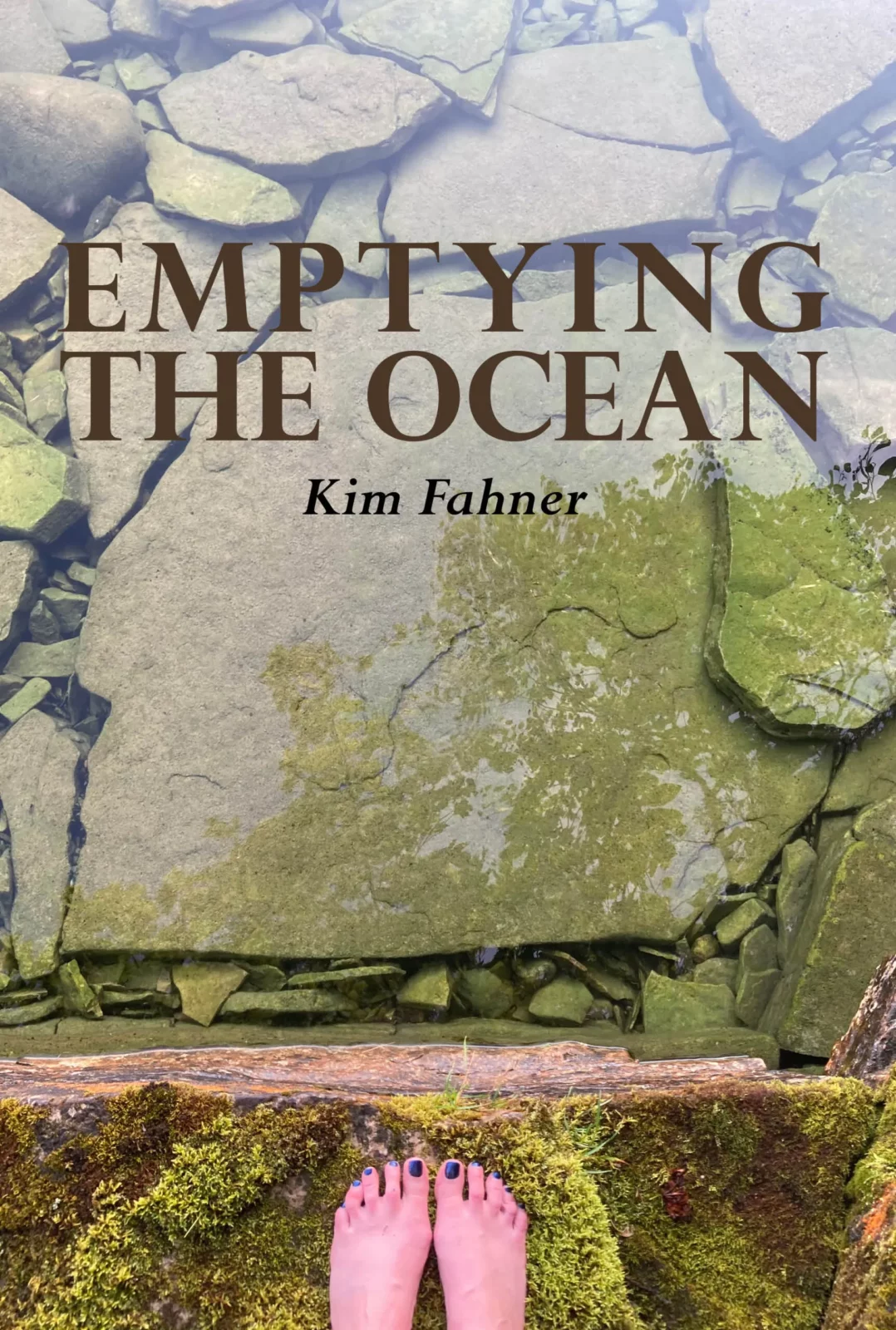Kim Fahner’s Emptying the Ocean is a feminist narrative modelled on Irish immram tales traditionally featuring men. Men in immram tales are often expelled from monastic communities for violent acts like rape or murder. Their chance at redemption comes through pilgrimage across the ocean to distant islands, whereas women banished to sea are often being punished for transgressions against community mores such as perceived sexual excesses. They are not expected to heal and return. [i]

In traditional immram “the voyagers … reach many fantastical islands, and at the journey’s end, they are changed, as are outlook and agenda.”[ii] In her multi-faceted immram tale, the speaker in Fahner’s journey moves from the figurative island of Northern Ontario, to Newfoundland and Ireland.
In Emptying the Ocean transformation is expressed in the skin-shedding selkie poems which bookend the collection. Using devices such as repetition to create an incantatory quality in many of the poems, Fahner introduces us to her pilgrim in “Tiny songs for a woman who watches icebergs”: “She walks down to the sea, / insides all tall-built walls and curled up fear / her shapeshifter skin draped over shoulders”; “She walks down to the sea, all broken glass… .” “She walks down to the sea…opens her mouth wide and sings… a siren’s song, / a story.”
Many of the poems evoke the struggle between the libido of the earthly body and libido as creative impulse best fed by solitude. Desire simmers in the poems, yet intimacy with lovers often seems to threaten an autonomous self. In “Longing” Fahner evokes “A shimmer, desire that skims / from ankle, to back of knee, / … / over curve of belly, between breasts, / a shiver…finger painting stars.”
In “Terrarium love letter” the speaker’s love is contained “inside a snow globe / frozen impossible.” She urges herself to “Hide desire, try hard to / swallow want whole. Again.”
Empathetic, insightful and beautifully crafted poems about the goddess Persephone, the artists Maud Lewis and Mary Pratt, and the Bronte sisters Emily and Charlotte all conjure the trade-offs and-losses of creative women who were forced to give up their freedom, or chose to do so. In “Poisoned Pomegranates,” the first of three poems about Persephone, Fahner describes the fruit as a “jewel-clustered…globe of promise.” Persephone ate the pomegranate after being told not to on pain of never leaving Hades again. With echoes from the ancient immram which did not offer women the same chance for redemption through journey as men, the speaker addresses the goddess, “You should not be blamed, / but you will be punished.”
There are several poems in Emptying the Ocean in which the speaker swims (descending into her unconscious) and emerges with the roots and tendrils of water lilies in her hair, cleansed and re-born. This image evokes feminist scholar Monique Wittig who was often quoted by women asserting their freedom during the 1980s: “There was a time you were not a slave, remember that. You walked alone, full of laughter, you bathed bare-bellied.”
I will be re-reading this collection of luscious, original poems to savour its multi-layered poems and remind myself of my vow to protect my creative freedom. I hope you will immerse yourself in Emptying the Ocean too.
[i] Bekkhus, Eivor. “Men on pilgrimage – women adrift: thoughts on gender in sea narratives from early medieval Ireland.” Gender in medieval places, spaces and thresholds, Editor(s): Victoria Blud, Diane Heath, Einat Klafter, Published by: University of London Press, Institute of Historical Research. (2019) Stable URL: https://www.jstor.org/stable/j.ctv9b2tw8.13
[ii] Ibid
Bios
Kate Rogers
Kate Rogers next poetry collection, The Meaning of Leaving, is forthcoming with Montreal-based publisher, Ace of Swords (AOS), in early 2024. Her poems recently appeared in SubTerrain, The Windsor Review and Looking Back at Hong Kong (Chinese University of Hong Kong). Kate’s reviews have appeared in The Goose, Ricepaper and Prism International. Kate is a Co-Director of Art Bar, Toronto’s oldest poetry only reading series. More at: katerogers.ca/ [updated November 2023]

